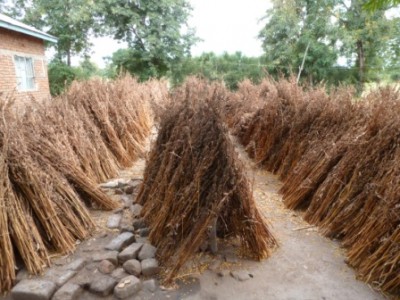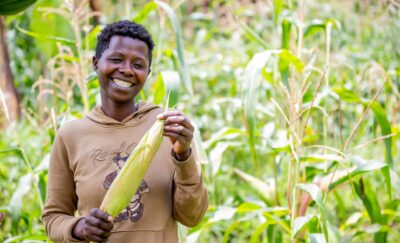News
27 July 2012
Improved sesame prices for Tanzanian farmers

In the first phase of our sesame project Farm Africa trained farmers on demonstration plots in the Babati district of northern Tanzania. They tested four different varieties of sesame seeds to find the variety that is most suitable for the local environment.
Following the success of the first phase, Farm Africa has now embarked upon a new phase of the project, working with the same 920 farmers from 46 farmers’ groups. This second phase has seen farmers move from the demonstration plots onto co-operative farms where they are putting their training into practice, and seeing some dramatic results too.
Farmers sell collectively to fetch higher prices
Members are able to sell their sesame harvests for higher prices by keeping it in a co-operative store built by Farm Africa. This is because sesame prices rise after the harvest is finished: the co-operative waits to sell the sesame in bulk when it is most valuable and for higher prices than individual farmers would gain if they were to sell their harvests separately.
Some farmers initially proved reluctant to store their harvests with the co-operative without immediate payment. But Farm Africa has overcome this problem making a loan to the co-operative. The loan means that the co-operative can now part-pay the farmers when they hand over their harvests for storage with the balance being paid after the co-operative sells the sesame at the higher post-harvest prices.
The results have been dramatic. Last year traders paid farmers just 1300 Tanzania Shillings per kilo of sesame. This year, thanks to the Farm Africa loan, the co-operative is able to pay farmers 1000 Tanzanian Shillings up front and the farmers can expect a final price of nearer to 2000 Shillings per kilo, representing a price increase of 65%.
Another factor that has helped push prices up has been Farm Africa’s providing farmers with improved seeds. The seeds produce sesame of a higher quality, creating higher demand in local markets and increased prices for the sesame farmers.
To support this project and our other work, please click here.




